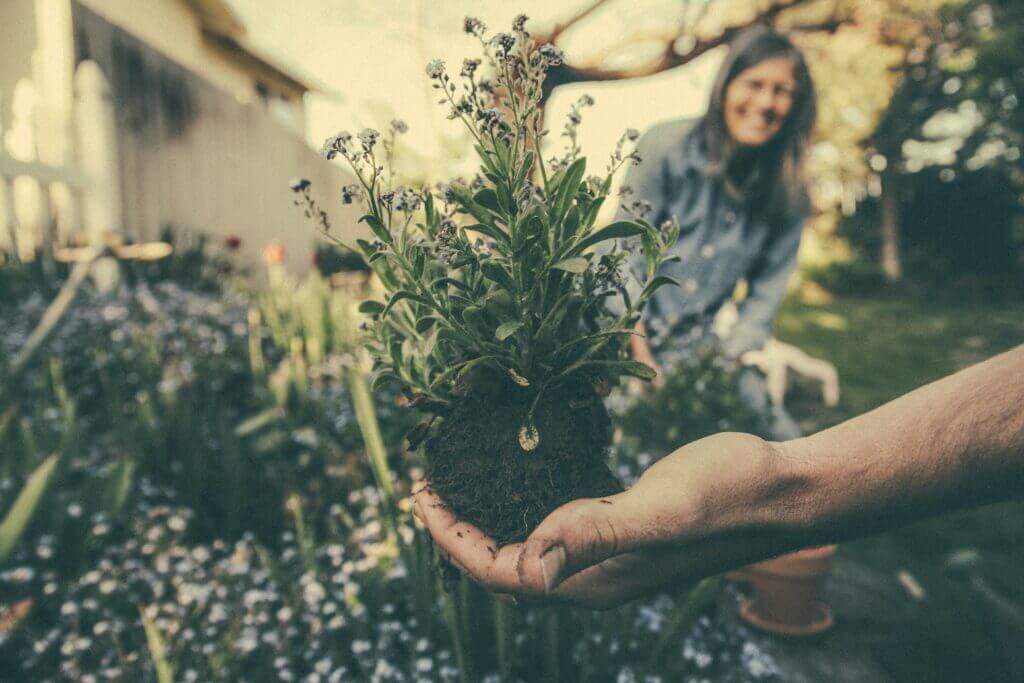At Caring Places Management, we are always looking for ways to enhance the lives of our residents. That’s why we are so excited to announce our new affiliation with the organization Eldergrow to provide therapeutic gardening programs. We have chosen Beehive Retirement in McCleary, WA, as the facility where we will pilot this program. Gardening for older people offers a wealth of physical, mental, and social benefits. We have chosen to launch this program because we want our residents to take advantage of the many benefits of gardening in seniors
What Are the Benefits of Gardening for Seniors?
Biophilia is a hypothesis that human beings have an ingrained genetic need for interaction with nature. Though most of the support for this theory is anecdotal, there is also some qualitative evidence to back it up. If the hypothesis of biophilia turns out to be true, then gardening certainly helps to fulfill this innate need to connect with the natural world.
Regardless of whether or not the biophilia hypothesis turns out to be scientifically sound, research has demonstrated that seniors can benefit from gardening in concrete, measurable ways.
Physical Benefits of Gardening
Even looking out at a garden through a window can help to reduce heart rate and lower blood pressure. However, the physical health benefits of actively working in a garden can be even more significant. Gardening can help develop flexibility, stamina, and strength. Many people do not think of it as a form of aerobic exercise because they become so engrossed in what they are doing that they do not give much thought to the physical side. Nevertheless, one can work multiple muscle groups in one’s body by bending and twisting while planting and reaching for plants and tools.
A garden requires regular tending to grow healthy. Therefore, it is a good way for older adults to increase physical activity consistently. Research has shown that increasing physical activity can help prevent severe medical conditions such as type 2 diabetes, osteoporosis, and heart disease. It may also reduce the risk of developing certain cancers.
Mental Benefits of Gardening
Older adults are at increased risk of psychological conditions, such as depression, and neurodegenerative conditions, such as dementia. Gardening is highly effective at reducing stress and elevating mood. A study in which a group of people who participated in 30 minutes of gardening after completing a stressful task showed lower cortisol levels, a stress hormone, and subjective reports of mood elevation compared to another group who went inside to read after the stressful job. Another study showed a 36% decrease in the risk for developing dementia as a result of gardening.
Reflections on one’s past help connect it to the present, and this self-continuity can help imbue life with meaning and purpose. The sensory experience of being in the garden can help evoke memories, especially the sense of smell, which is most closely connected to the memory centers in the brain.
Social Benefits of Gardening
Seniors are at risk for loneliness and isolation due to decreased socialization opportunities. Sharing interests with like-minded people is an excellent way to socialize, make new friends, and build up a support system to combat isolation and loneliness, as well as the physical and psychological complications they can have.
What Specific Advantages Does the Evergrow Program Have To Offer?
Everyone should be able to enjoy the benefits of gardening regardless of age or physical limitations. Evergrow is an award-winning horticultural therapy program. The program is based on scientific evidence supporting the healing aspects of interacting with nature for seniors.
Eldergrow offers both indoor and outdoor gardening programs. Indoor gardens are built on a self-contained platform. It is designed to be accessible to gardeners whether they are seated, standing, or in a wheelchair and is mounted on safety-locking wheels to be transported from place to place. Indoor gardening can take place at all times of the year, no matter the weather.
Specially trained instructors teach Evergrow programs. Participants have the opportunity to interact with the instructor as well as other gardeners. They are also welcome to invite family members to participate in classes, making the activity even more social.
Education is built into the Evergrow program. Participants learn about the individual needs of each plant and how to track water to meet them. They learn to harvest the plants and take a cooking class that uses what they grow in the garden to make a meal.
Caring Places Management is very excited about partnering with Evergrow to enhance our residents’ lives through interactions with nature. We hope to expand the program to our other facilities based on the success of our pilot program at Beehive Retirement. Not only that, but we continue to look for opportunities to provide more therapeutic programming to our residents.

